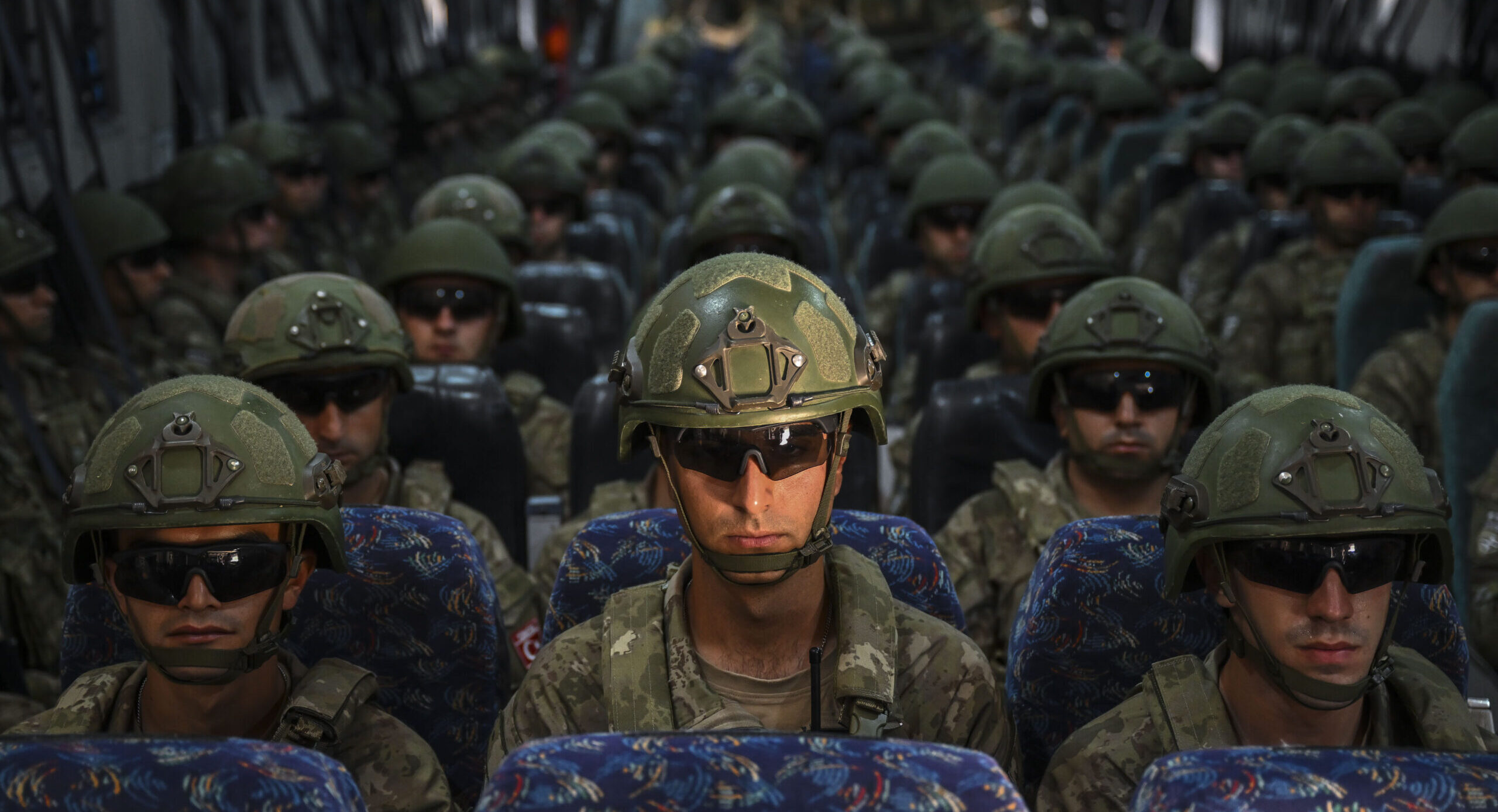Whether or not Ukraine’s attempts to kick Russian forces out of its territory are successful, it seems certain the war will end with a negotiated settlement. The West will want negotiations to favour its ally while stopping further violations of its sovereignty. There’s a precedent for such aspirations elsewhere in Europe — but it’s far from promising.
Recent days have seen a dramatic turnaround in Kosovo, as the West appears to reconsider its staunch support for Pristina as Kosovo takes actions that threaten the region’s fragile peace. Instability and simmering violence in the breakaway state have tended to be blamed solely on aggressive Serb nationalism stoked by Serbian President Aleksandar Vučić, but there is now growing recognition that violent Kosovan nationalism is also responsible for rising tensions.
The latest in a litany of incidents pushing relations to breaking point was the arrest of three Kosovan police officers in combat gear inside Serbian territory. Pristina insists the officers were abducted by Serbia from within Kosovo, but Vučić rejects this and warns that “you cannot invade the territory of a sovereign country with such weapons.”
Fearful of any further escalation, Washington is calling for the officers to be released without conditions, but Serbia ignored this demand and a court on Friday ordered an investigation. In response, Kosovo announced a ban on the entry of all Serbian vehicles and goods.
Many have been tempted to see the Kosovo question as a struggle between good and evil, with Kosovo held up as a bastion of democracy and human rights defying revanchist Serb nationalism. But just before the arrests were made, the EU put paid to this straightforward narrative by announcing sanctions on Kosovo. The bloc will cut diplomatic and economic cooperation in response to inflammatory recent actions by Kosovo authorities in Serb-majority northern regions following disputed local elections earlier this year.
Despite its queasiness over the treatment of the arrested police officers, Washington has taken similar steps, issuing a statement condemning the use of force by Kosovan police that “sharply and unnecessarily escalated tensions.” Western allies are also frustrated by Kosovo’s refusal to implement previous agreements, particularly the creation of an association allowing Serb municipalities a limited degree of self-governance.
This may all seem like just another chapter in the never-ending saga of violence and bad blood between Serbia and Kosovo. But the West’s inability to find a solution in the Balkans may be telling for Ukraine.
Apart from preventing another full-scale war, it’s hard to see how the fragile peace enforced by the West in Kosovo since 1999 can be considered a success. As last week’s events show, Serbia and Kosovo live in a state of permanent tension, and the presence of NATO’s Kosovo Force often appears to be the only thing preventing all-out war. But it’s hardly likely that NATO forces could be deployed in a similar way as a result of any future Ukraine-Russia negotiations.
Meanwhile, every diplomatic step towards the normalisation of relations is followed by two steps back. Neither Serbia nor Kosovo seems likely to make progress in their attempts to join the EU anytime soon. Serbia is still waging an active campaign for de-recognition of Kosovo on the international stage, and now, the West risks being embarrassed as its chosen ally takes actions that make it culpable for a situation that’s getting worse, not better.
If violence over Kosovo can barely be kept in check even with a NATO presence, questions need to be asked about the West’s ability to craft a workable future security framework for Ukraine, even in the event of a Russian defeat. Those optimistic that defeat for Putin will bring about an end to revanchist nationalism and usher in a long-term resolution to ethnic strife should look to Kosovo and think again.










Join the discussion
Join like minded readers that support our journalism by becoming a paid subscriber
To join the discussion in the comments, become a paid subscriber.
Join like minded readers that support our journalism, read unlimited articles and enjoy other subscriber-only benefits.
Subscribe